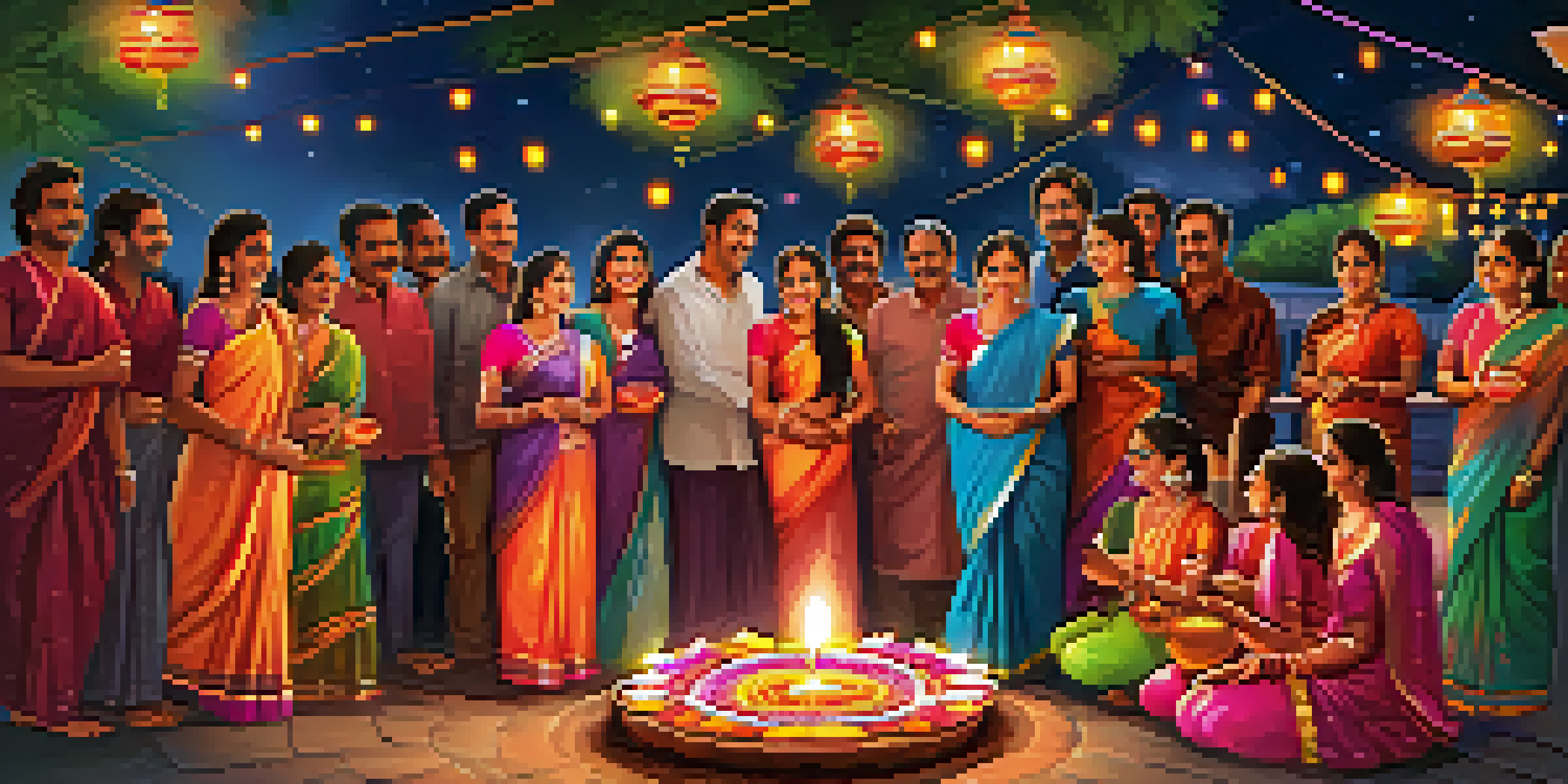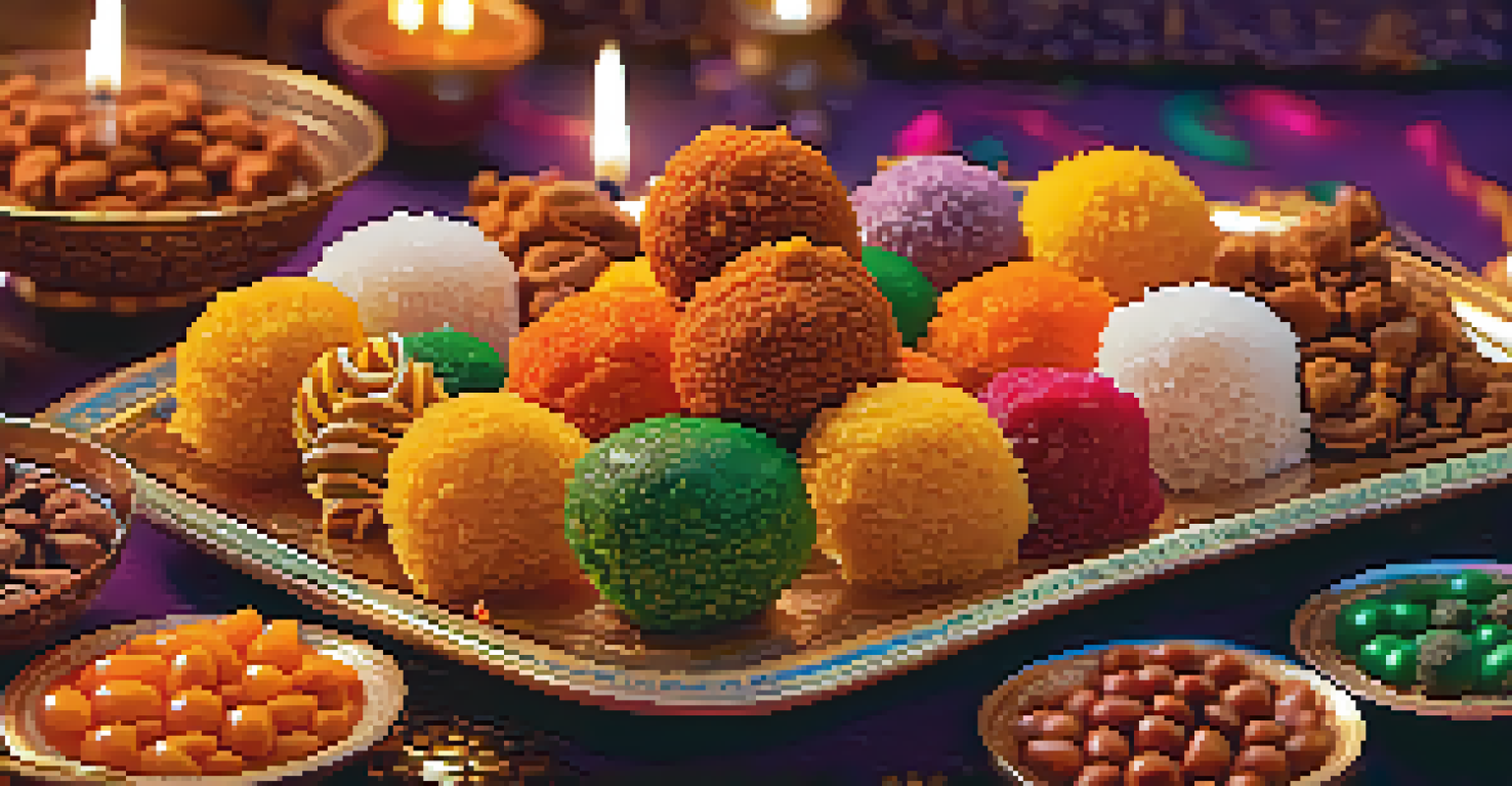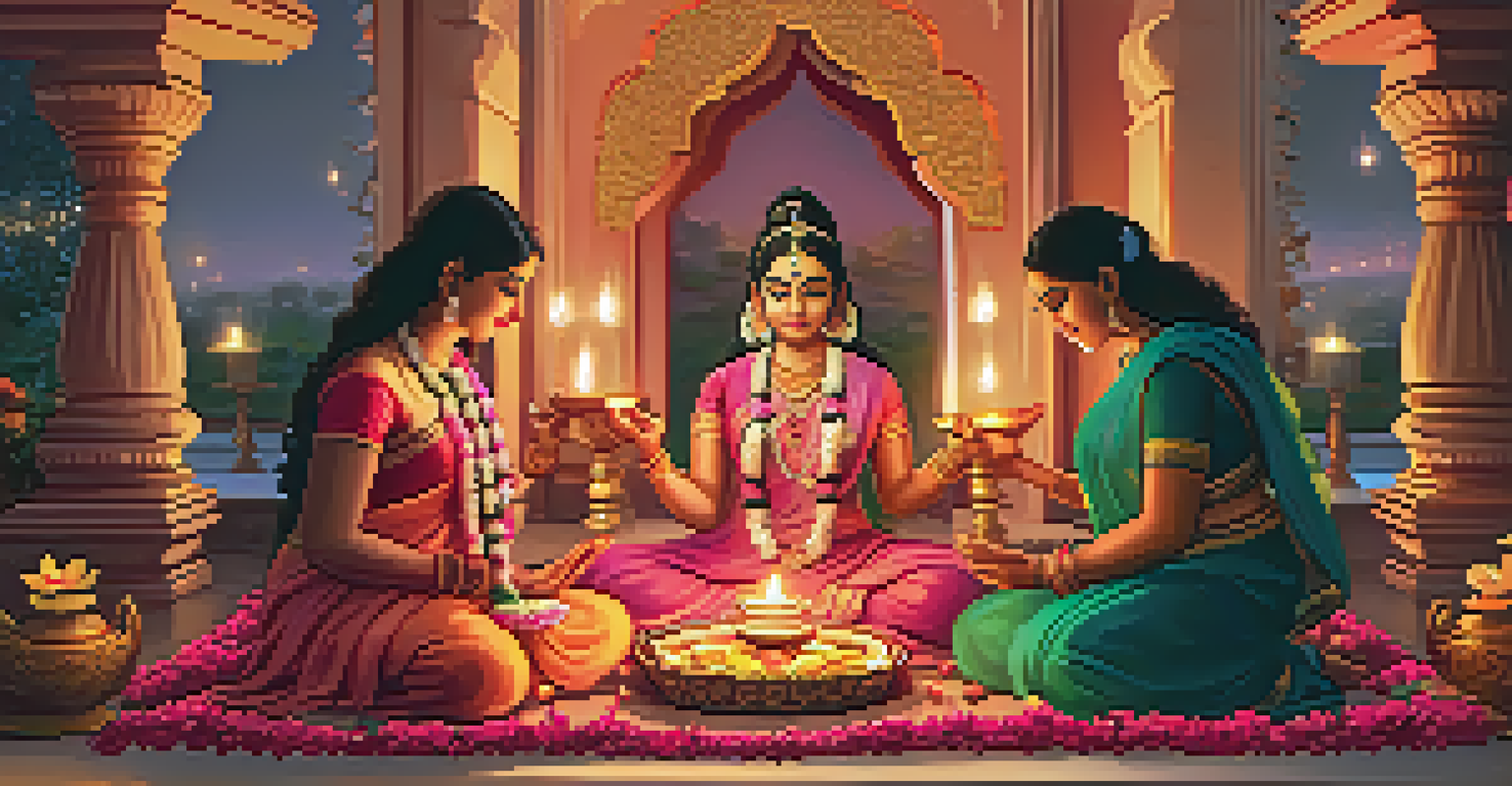Diwali: The Festival of Lights Celebrated Across India

Understanding Diwali: A Festival of Lights
Diwali, known as the Festival of Lights, is celebrated with great fervor across India. It symbolizes the victory of light over darkness and good over evil. Each year, families come together to partake in this joyous occasion, which typically falls in October or November.
Light is the symbol of knowledge and wisdom, and the darkness represents ignorance. Diwali teaches us to rise to the light of knowledge.
The festival is rooted in Hindu mythology, particularly the return of Lord Rama to Ayodhya after defeating the demon king Ravana. Homes are illuminated with diyas (oil lamps) to welcome prosperity and happiness. Beyond Hinduism, Diwali is also celebrated by Jains, Sikhs, and some Buddhists, each adding their unique traditions.
As the festival approaches, excitement fills the air, with preparations that include cleaning homes, buying new clothes, and preparing delicious sweets. This sense of anticipation is part of what makes Diwali a beloved occasion for many.
The Significance of Lighting Diyas
Lighting diyas is one of the most iconic symbols of Diwali. These small oil lamps are placed around homes, signifying the dispelling of darkness and ignorance. The glow of the diyas creates a magical atmosphere, turning even the simplest abode into a beacon of light and hope.

Traditionally, families will place diyas at the entrance of their homes and in temples to invite Goddess Lakshmi, the deity of wealth and prosperity. The act of lighting these lamps serves as a reminder of the importance of inner light and knowledge in our lives.
Diwali Celebrates Light and Unity
Diwali symbolizes the triumph of light over darkness and fosters communal bonds through shared traditions and rituals.
In modern times, people also decorate their homes with colorful lights and rangoli designs, further enhancing the festive spirit. This combination of traditional diyas and contemporary decorations reflects the evolving nature of Diwali celebrations.
Rituals and Traditions of Diwali
Diwali is rich with rituals that vary across regions, but they share a common theme of unity and celebration. One popular custom is the Lakshmi Puja, where families worship the Goddess of wealth for prosperity in the coming year. This ritual often includes prayers, offerings, and the lighting of diyas.
The festival of lights is a time to reflect on the past year, to celebrate our achievements, and to share in the joy of our communities.
Another cherished tradition is the bursting of fireworks, which adds an element of excitement to the festivities. The bright colors and sounds symbolize joy and celebration, although many are now opting for eco-friendly alternatives to reduce pollution.
Food also plays a significant role during Diwali, with families preparing an array of sweets and savory dishes. Sharing these treats with friends and neighbors strengthens community bonds and spreads joy, embodying the spirit of togetherness.
Diwali Celebrations Across India
While Diwali is celebrated throughout India, each region has its unique flair. For instance, in North India, the festival is marked with grand fireworks displays and vibrant fairs. Cities like Delhi and Varanasi come alive with lights and cultural performances.
In South India, Diwali is observed with a focus on family rituals and special meals. Here, the celebration often includes the preparation of traditional dishes like 'Mysore Pak' and 'Sundal', highlighting regional flavors and customs.
Diverse Regional Celebrations
Each region in India showcases its unique customs and flavors during Diwali, reflecting the rich cultural tapestry of the festival.
In the West, states like Gujarat embrace the festival with traditional dances like Garba, bringing communities together in joyous celebration. These diverse celebrations showcase the rich tapestry of Indian culture and the universal themes of joy and hope that Diwali represents.
The Role of Diwali in Community Bonding
Diwali is not just a family affair; it serves as a powerful catalyst for community bonding. Neighbors exchange sweets and gifts, fostering goodwill and reinforcing social ties. This spirit of sharing extends beyond immediate communities, as many participate in charitable acts during the festival.
Many people take this opportunity to donate to those in need, reflecting the values of compassion and empathy. Community gatherings and events create a sense of belonging and togetherness, making Diwali a true celebration of unity.
Moreover, social media has played a role in bringing people together, as families and friends share their celebrations online. This modern twist on tradition allows people to connect and celebrate, regardless of distance.
Modern Adaptations of Diwali
As society evolves, so do the ways in which Diwali is celebrated. Many people now incorporate eco-friendly practices into their festivities, such as using biodegradable decorations and opting for noise-free fireworks. This shift reflects a growing awareness of environmental sustainability.
Technology has also transformed the way people celebrate Diwali, with online shopping for gifts and decorations becoming increasingly popular. Virtual celebrations, especially during times of social distancing, have allowed families to connect in new ways.
Modern Adaptations Embrace Change
Contemporary practices, such as eco-friendly celebrations and virtual gatherings, enhance the relevance of Diwali while preserving its core values.
These modern adaptations do not diminish the festival's essence; rather, they add layers to the celebration, making it relevant to contemporary life while preserving its core values of light, hope, and togetherness.
Conclusion: Embracing the Spirit of Diwali
At its heart, Diwali is a celebration of hope and new beginnings. The festival encourages us to reflect on our lives, dispelling negativity and inviting positivity. Whether through rituals, community gatherings, or personal reflections, the essence of Diwali is about finding light in the darkness.
As you celebrate Diwali, consider the values it represents—compassion, generosity, and unity. These principles extend beyond the festival, inspiring us to carry its spirit throughout the year.

Ultimately, Diwali serves as a reminder that, no matter our differences, we all share the desire for happiness and fulfillment. Embracing this spirit can help us create a more harmonious world.